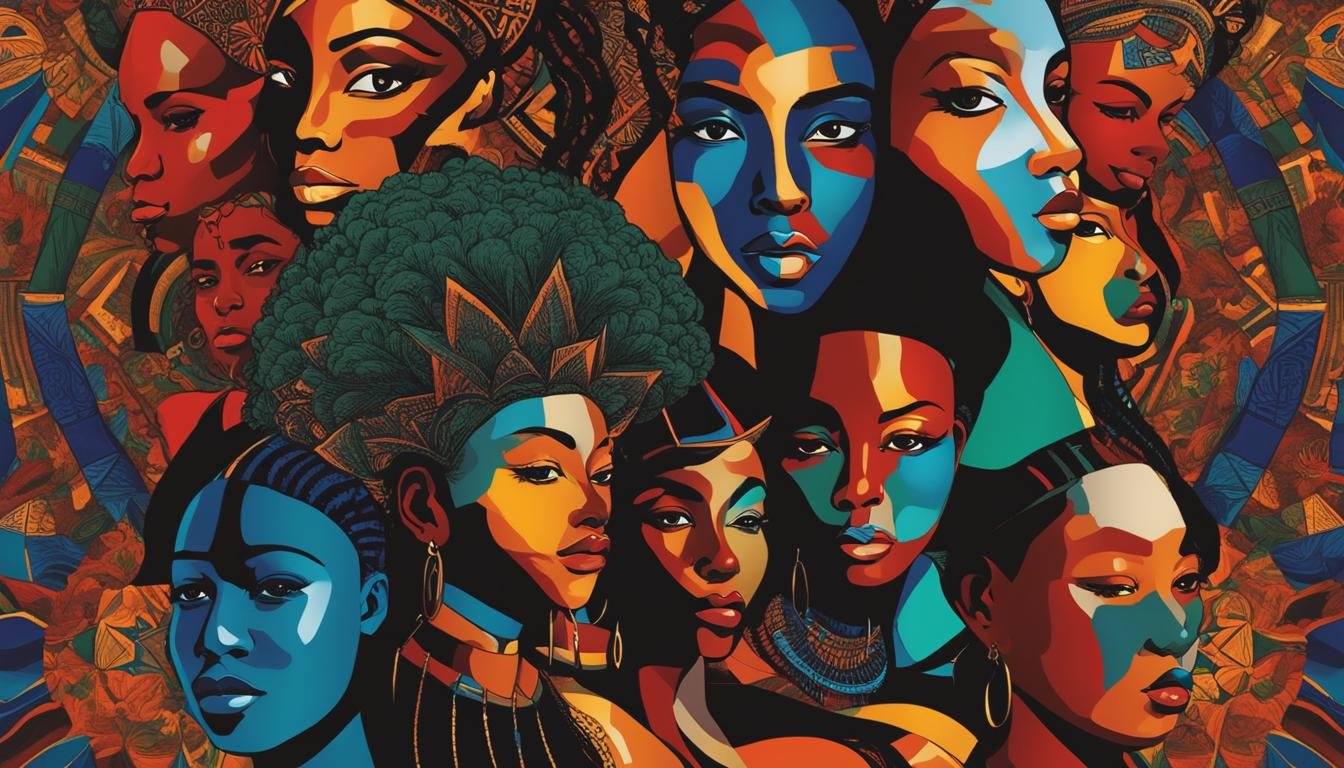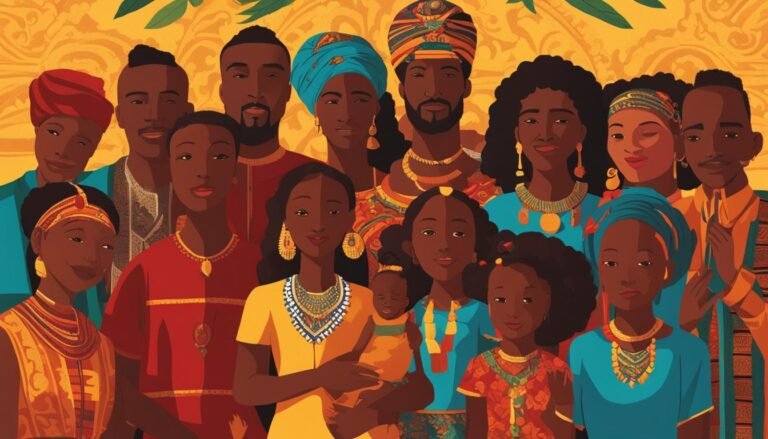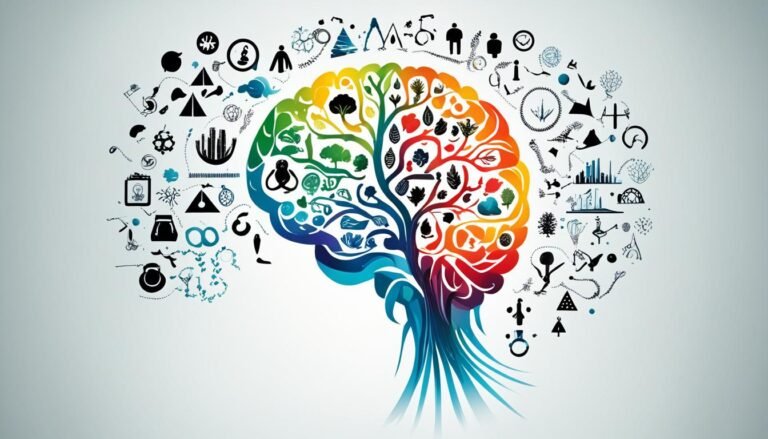Do We Need a Black Psychology?
Black psychology has emerged as a response to the lack of representation and understanding of the unique experiences and mental health needs of the African American community. It challenges the color-blind perspective of traditional psychology and seeks to explore and validate the psychological experiences of Black individuals. The importance of Black psychology lies in its ability to provide culturally relevant and empowering approaches to mental health and to address the systemic barriers and racism that impact the well-being of Black people. Through research, theories, and perspectives specific to Black psychology, it aims to promote mental health and social justice within the African American community.
Key Takeaways:
- Black psychology highlights the unique experiences and mental health needs of the African American community.
- It challenges the color-blind perspective of traditional psychology.
- Black psychology aims to provide culturally relevant and empowering approaches to mental health.
- It addresses systemic barriers and racism that impact the well-being of Black people.
- Through research and theories, Black psychology promotes mental health and social justice in the African American community.
Historical Challenges and Misconceptions
Throughout its history, Black psychology has faced numerous challenges and misconceptions that impeded its recognition and acceptance. White psychologists, uninformed about the distinct field of Black psychology, often dismissed its necessity and relevance within the larger discipline. Their arguments centered around the belief that psychology should be color-blind and that there was no need for a separate field to address the experiences of Black individuals.
“Psychology should not be segregated based on race. We should strive for a color-blind approach that focuses on universal human experiences,” argued some white psychologists.
However, such perspectives failed to acknowledge the historical and ongoing systemic racism that has shaped the lived experiences of Black individuals. In turn, these deficit-based viewpoints perpetuated harmful eurocentric ideas, suggesting that Black people harbored self-hatred and an unconscious preference for white individuals.
“Due to the weight of racism, Black individuals suffer from internalized racism, leading to self-hatred and a preference for white people,” posited certain psychologists, promoting misguided notions of Black psychology.
In response to these challenges, prominent Black psychologists like Joseph White challenged the deficit-based and eurocentric ideas that had hindered the development and recognition of Black psychology as a legitimate and vital field of study.
Joseph White played an essential role in advocating for more culturally relevant and empowering perspectives within psychology. He emphasized the need to understand and study the experiences of Black individuals within their own cultural context, encouraging the exploration of African American history and culture in psychological research and practice.
By challenging historical misconceptions and advocating for a more comprehensive understanding of Black psychology, these pioneers laid the foundation for the recognition and advancement of a field that honors and validates the unique experiences and psychological well-being of Black individuals.
| Challenges | Misconceptions |
|---|---|
| Denial of the existence of Black psychology | Argument for color-blind approach in psychology |
| Lack of awareness about the Association of Black Psychologists and the Journal of Black Psychology | Eurocentric idea of internalized racism in Black individuals |
| Dismissal of the need for culturally relevant approaches in understanding and studying the experiences of Black individuals | Misguided belief of self-hatred and unconscious preference for white individuals in Black people |
The Role of Black Psychology in Social Movements
Black psychology has played a significant role in social and cultural movements advocating for Black empowerment and challenging racist narratives. The Black is Beautiful cultural movement and songs like James Brown’s “Say it Loud, I’m Black and I’m Proud” provided a cultural context for Black psychologists to challenge the notion of White preference and self-hatred. Black psychology emphasizes the humanity and potentiality of Black individuals, promoting a positive and strengths-based perspective. It has also contributed to the development of multicultural psychology, recognizing the importance of cultural diversity and inclusivity in understanding human experiences.
| Social Movements | Impact |
|---|---|
| Black Lives Matter | Black psychology provides a psychological perspective on systemic racism and the impact of police brutality on Black communities. It helps shape the discourse and promote mental health within the movement. |
| Black is Beautiful | Black psychology challenges the stereotypes and negative self-perceptions that have been historically imposed on Black individuals. It emphasizes self-love, empowerment, and cultivating a positive racial identity. |
| Cultural Movements | Black psychology acknowledges the cultural and historical context of the Black experience. It validates the diverse range of Black identities and fosters cultural pride and resilience. |
| Empowerment | Black psychology empowers individuals and communities by highlighting their strengths, resilience, and potential for growth. It encourages self-advocacy, collective action, and social change. |
The Impact of Black Psychology on Mental Health
Black psychology plays a vital role in recognizing and addressing the mental health disparities faced by the African American community. The experiences of discrimination, racial trauma, and systemic racism contribute to higher rates of mental health issues among Black individuals. According to a study by Williams et al. (2019), Black adults are more likely to experience depressive symptoms, anxiety disorders, and post-traumatic stress disorder (PTSD) compared to their white counterparts. These disparities highlight the urgent need for culturally informed therapy and interventions that take into account the unique experiences and cultural context of Black individuals.
Black psychologists understand the importance of providing mental health services that are sensitive to the cultural, historical, and social factors that shape the lives of their clients. They strive to create a safe and inclusive environment where Black individuals can express their concerns and emotions freely. By integrating cultural traditions, beliefs, and values into therapy, Black psychologists aim to empower their clients and facilitate the healing process.
“Culturally informed therapy acknowledges and validates the experiences of Black individuals, providing a foundation for healing and resilience,” says Dr. Angela Davis, a renowned Black psychologist.
In addition to addressing mental health disparities, Black psychology plays a critical role in countering the stigma surrounding mental health within the African American community. Due to historical factors such as racism, oppression, and a lack of access to quality healthcare, seeking help for mental health issues has often been discouraged or viewed as a sign of weakness. This stigma contributes to the high rates of untreated mental health conditions among Black individuals. Black psychologists work tirelessly to create awareness, educate communities, and normalize the importance of mental wellness.
Impact of Black Psychology on Suicide and Depression Rates
Alarmingly, suicide rates and depression rates have been particularly high among Black individuals. A study conducted by Joe et al. (2020) found that suicide rates among Black youth have been steadily rising, surpassing those of their white peers. Black psychologists are actively involved in research, prevention, and intervention efforts to address this crisis. They recognize the complex interplay of societal factors, racial trauma, and systemic disparities that contribute to the heightened risk of suicidal ideation and attempts.
Moreover, Black psychologists emphasize the importance of addressing depression rates among the African American community. Depression often goes undiagnosed and untreated due to various reasons, including a lack of understanding of the symptoms, fear of judgment, and limited access to mental health resources. By providing culturally informed therapy and interventions, Black psychologists help to destigmatize depression and encourage help-seeking behaviors among Black individuals.
| Mental Health Issues | Black Individuals | White Individuals |
|---|---|---|
| Suicide Rates | Higher than average | Lower than average |
| Depression Rates | Higher than average | Similar to average |
Note: The table above provides a comparison of mental health issues among Black and white individuals. It highlights the higher rates of suicide and depression among Black individuals, emphasizing the need for targeted mental health interventions.

Black psychology’s impact on mental health extends beyond individual therapy. Through community-based programs, advocacy, and policy initiatives, Black psychologists strive to address the root causes of mental health disparities. They work towards dismantling systemic barriers and promoting equitable access to resources, support networks, and quality mental health services for the African American community.
The efforts of Black psychologists in combating mental health disparities and promoting culturally informed therapy are crucial steps towards creating a more inclusive and equitable mental health system. By recognizing and honoring the unique experiences and needs of Black individuals, Black psychology plays a vital role in improving the mental well-being and overall quality of life within the African American community.
The Need for Representation in Black Psychology
The field of Black psychology faces significant challenges when it comes to representation. There is a lack of Black psychologists, particularly within academic institutions and professional organizations. This underrepresentation hinders the field’s ability to incorporate diverse perspectives, conduct inclusive research, and gain a comprehensive understanding of Black psychology.
Black students and individuals seeking therapy can benefit immensely from having access to Black psychologists. These professionals possess a unique understanding of the experiences and cultural nuances that influence the mental health of Black communities. By providing culturally sensitive care, Black psychologists can offer insights and interventions that align with the specific needs of their clients.
However, the realization of a diverse and representative field faces resistance and backlash from those who fail to acknowledge or appreciate the legitimacy and importance of Black psychology. This resistance can limit the progress and acceptance of Black psychology as a distinct and invaluable discipline.
Despite the challenges, it is crucial to continue advocating for greater diversity and representation in the field of Black psychology. By welcoming and supporting more Black psychologists, academic institutions and professional organizations can foster a collaborative environment that embraces the unique perspectives and insights they bring. This inclusivity will contribute to a more comprehensive understanding of mental health and empower Black communities to thrive.
Overcoming Barriers and Fostering Diversity
Overcoming the barriers to entry and fostering diversity within the field of psychology is crucial for the development and advancement of Black psychology. Black individuals often face various barriers that hinder their participation in psychology programs and limit their representation within the field.
- Barriers to entry: Black individuals encounter obstacles such as misdiagnosis and disproportionate disciplinary actions, which can negatively impact their access to advanced education and psychology programs.
- Graduation barriers: Limited access to resources and support networks can hinder Black individuals from successfully completing their psychology degrees, further contributing to the underrepresentation of Black psychologists.
- Pipeline into psychology: Insufficient pipelines and mentorship programs prevent many Black individuals from entering the field of psychology and pursuing a career in mental health.
- Funding: Lack of financial support and scholarship opportunities disproportionately affect Black students who aspire to study psychology, making it difficult for them to pursue higher education and contribute to the field.
- Exposure to psychology: Limited exposure to psychology as a viable career option hinders Black individuals from considering it as a rewarding and impactful path.
- Professional mental health services: Misperceptions and stereotypes surrounding mental health services among Black communities can discourage individuals from seeking professional help and contribute to the underutilization of mental health resources.
To overcome these barriers, concerted efforts are required. Increasing funding opportunities and scholarships specifically for Black students can alleviate the financial burden and provide access to quality education. Early exposure to psychology through mentorship programs, workshops, and community initiatives can inspire and encourage Black individuals to pursue careers in this field. By promoting the benefits of psychology and the importance of professional mental health services within Black communities, the negative perceptions can be challenged and the utilization of mental health resources increased.

Conclusion
Black psychology is a crucial and groundbreaking field that recognizes and addresses the unique experiences and mental health needs of the African American community. By challenging the historical exclusion and eurocentric perspectives in psychology, it offers culturally relevant and empowering approaches to understanding and promoting mental health among Black individuals.
The future of Black psychology lies in the continued efforts to foster diversity, representation, and inclusivity within the field. By ensuring that Black psychologists have a prominent voice in academic institutions, professional organizations, and research endeavors, we can further advance the field and promote a more comprehensive understanding of the African American experience.
Moreover, Black psychology plays a vital role in mental health advocacy and social justice. It advocates for mental health reforms that address the systemic barriers and racism that disproportionately impact Black individuals, striving for a society where mental well-being is prioritized for all, regardless of race or ethnicity. Through the promotion of inclusivity and equitable mental health services, Black psychology seeks to create a more inclusive and compassionate society for everyone.
FAQ
Do we need a Black psychology?
Yes, Black psychology is crucial in addressing the unique experiences and mental health needs of the African American community.
What is the importance of Black psychology?
Black psychology provides culturally relevant and empowering approaches to mental health and addresses systemic barriers and racism that impact the well-being of Black individuals.
What is the role of Black psychology in social movements?
Black psychology has played a significant role in social and cultural movements advocating for Black empowerment and challenging racist narratives.
How does Black psychology impact mental health?
Black psychology recognizes and addresses the mental health disparities faced by the African American community and aims to provide culturally informed therapy and interventions.
Why is representation important in Black psychology?
Representation in Black psychology is important to better understand the unique experiences of Black individuals and provide culturally sensitive care.
What are the barriers to entry in Black psychology and how can they be overcome?
Barriers to entry in Black psychology include misdiagnosis, limited access to education, and perceptions that professional mental health services are not for Black people. Overcoming these barriers requires increased funding, earlier exposure to psychology, and efforts to promote psychology as a viable career path for Black individuals.
What is the future of Black psychology?
The future of Black psychology lies in fostering diversity, representation, and inclusivity within the field, as well as advocating for mental health reforms and social justice.






